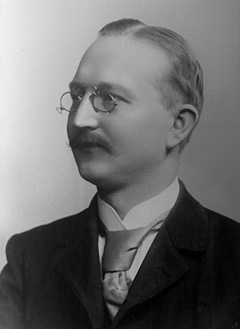Pages
-
Recent Posts
- Isaiah 14 and Ezekiel 28: Could It Be Satan? A Couple of Responses November 8, 2024
- Four Reading Tips for Graduate Students August 23, 2024
- Four Reasons I Embrace Online Instruction as a Theological Educator July 7, 2024
- Five Reasons Pentecostals Should Read Karl Barth July 6, 2024
- A Theology of the Spirit in the Former Prophets: A Pentecostal Perspective (Audio Summary Presentation and Q&A) April 12, 2024
Tag Cloud
- baptism in the Holy Spirit
- Bible
- Biblical hermeneutics
- Biblical Interpretation
- books
- Christ
- Christ Jesus
- Church
- creation
- David
- God
- Hermeneutics
- history
- Holy Spirit
- Humor
- Jesus
- Joshua
- Judges
- Kings
- Life
- Literary
- literary interpretation
- literature
- Lord
- Love
- Matthew
- Missions
- Old Testament
- pastor
- Paul
- Pentecostal
- Pentecostalism
- pneumatology
- Preaching
- Psalms
- Samuel
- Saul
- Sermon
- Society for Pentecostal Studies
- Spirit
- Theology
- translations
- Trinity Bible College
- women
- women in ministry
Archives
Categories
Meta
Hermann Gunkel on the Holy Spirit
I have been reading Hermann Gunkel‘s first book Die Wirkungen des heiligen Geistes nach der populären Anschauungen der apostolischen Zeit und der Lehre des Apostels Paulus (Gottingen: Vandenhoeck & Ruprecht, 1888) as part of my thesis research.* It is a brief, but altogether striking volume that was an unexpected gem by the hand of this Old Testament scholarly father of form criticism.
According to Gunkel, “Almost without exception, only those events that impinge on human existence are described as activities of the Spirit” (15). His argument is essentially that Paul was a thorough-going pneumatic, not to be confused as inferring that the Spirit was simply some inward ethical conscience or propulsion. In fact, he argues that there must be a distinction maintained between theologizing about the Spirit for doctrinal formulations and pneumatic experiences as such (8). The pneumatic experience of life is regarded as central (particularly to Pauline practice and congregations).
It was the pneumatic experiences of the Early Church which offered the evidence of God’s Spirit. Such evidence (particularly glossolalia, according to Gunkel) functioned to testify to possession and indwelling by God’s Spirit. Ethical behavior was the manifested proper use of such gifts of the Spirit. But Paul never made a move to a simply ethical/moral S/spirit as so many others of the Second Temple period (eg, Wisdom of Solomon, Philo, etc.). Paul could not conceive of the Spirit as less than enabling powerful manifestations, but that the ethical belonged still to the supernatural working of God’s Spirit.
While he admits (even requires) that the OT understanding of the Spirit of God was powerfully demonstrative, he likens such activities of the Spirit to insanity (5). And his understanding of Paul does not seem to reach much further. Gunkel almost seems to regard Paul as someone who has sadly embraced the pneumatic, when he seems so reasonable elsewhere in discerning other matters of faith.
All in all, I am struck by Gunkel’s emphasis upon the demonstrative pneumatic activities of the OT and NT despite his reluctance to accept such for our own day (at least as a supposed “reasonable” person might know better).**
___________
* Translated by Roy A. Harrisville and Philip A. Quanbeck II as, The Influence of the Holy Spirit: The Popular View of the Apostolic Age and the Teaching of the Apostle Paul (Minneapolis, MN: Fortress, 1979, 2008). The citations in this post follow this English translation and pagination.
** He does actually state that such phenomena have simply “retreated” rather than actually disappearing altogether, and that they are indeed still “present…among us” (4).
This entry was posted in Holy Spirit and tagged Hermann Gunkel, Paul, pneumatic. Bookmark the permalink.


Your description of this little known opus by Gunkel the OT man is so nice that I borrowed a big chunk of it to my Finnish blog where I am working on Enuma Elish and dealing with Gunkel’s Genesis and Psalm commentaries. The quote includes invitation for the readers to read your text in entirety in the original blog.
(If this is not fair use of your text please let me know and I will promptly remove it)
Glad to be of any help. 🙂